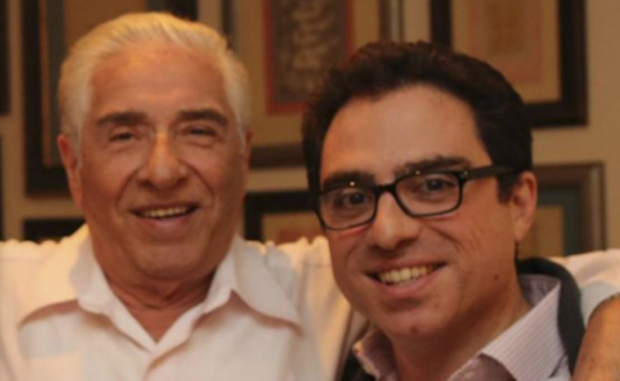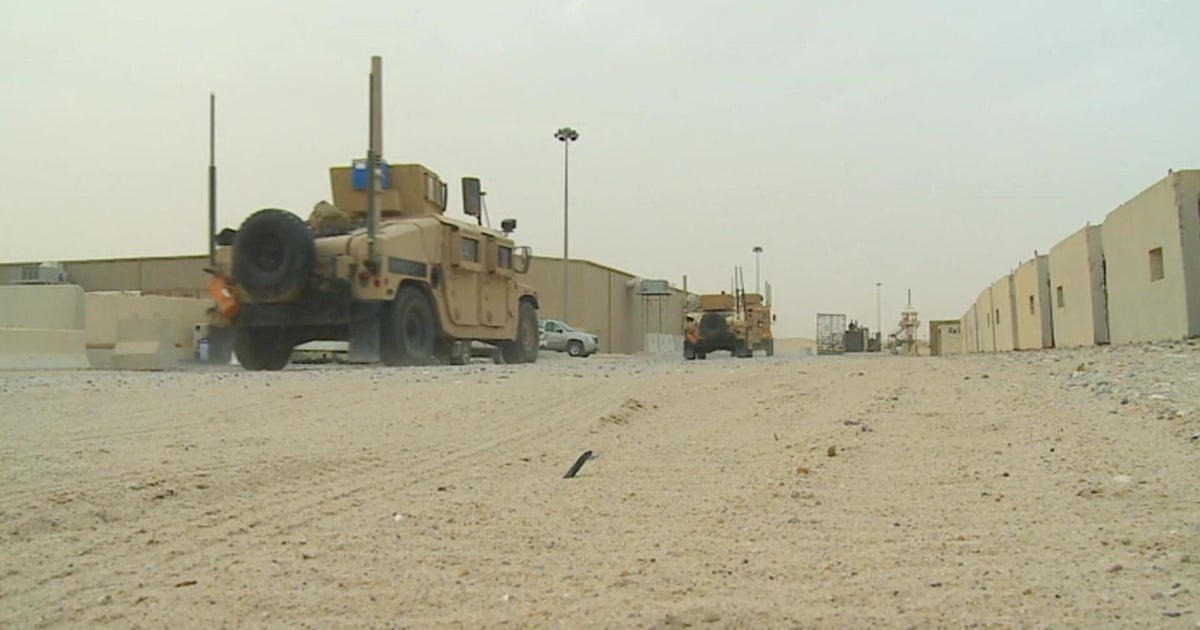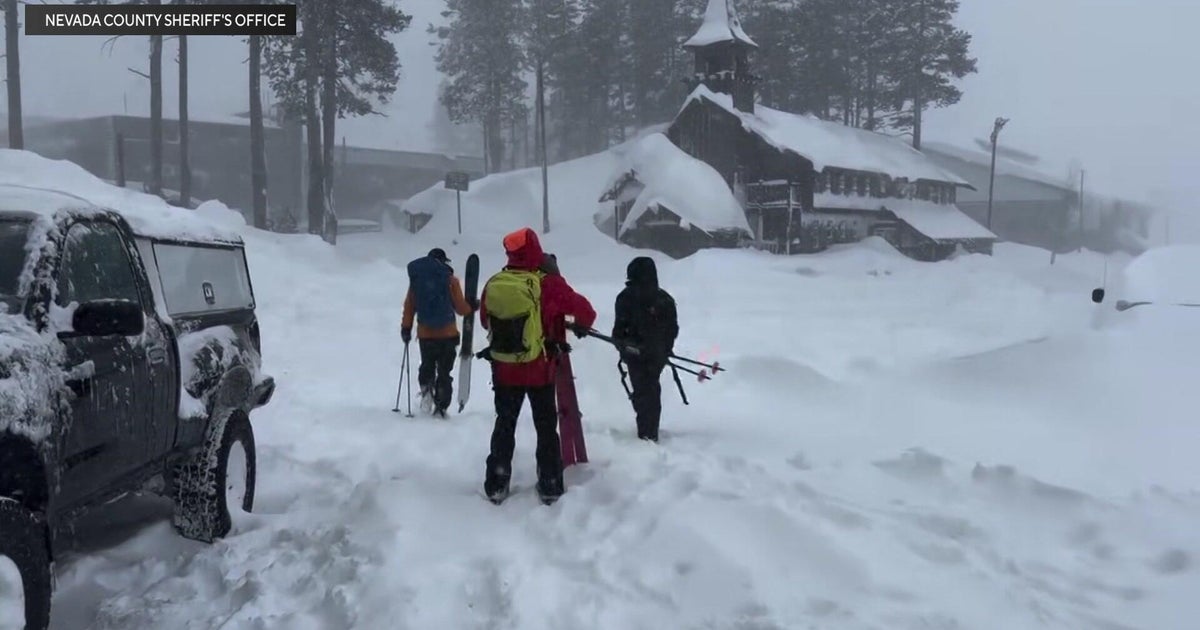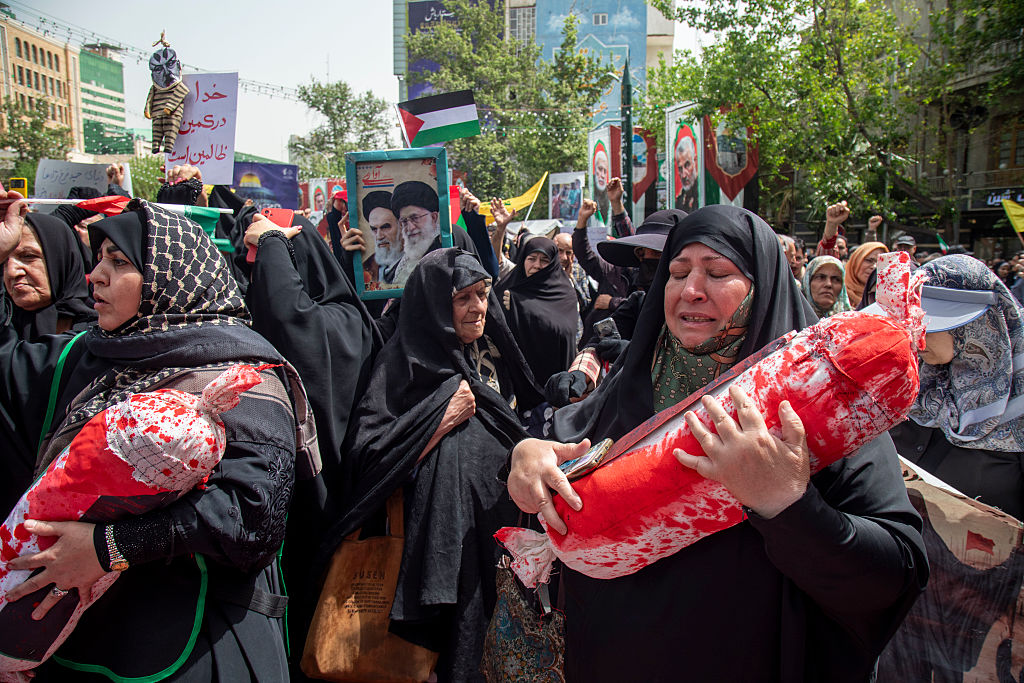U.S. national Baquer Namazi, 85, leaves Iran after more than 6 years in "illegal" detention
Dubai, United Arab Emirates — An 85-year-old Iranian-American held by Iran over internationally criticized spying charges left the country Wednesday for Oman, officials said, after increasing pressure to free him amid his struggles with poor health. His 51-year-old son, however, remains in Iran, currently on furlough from prison.
Baquer Namazi is the first American to be freed by Iran since President Joe Biden took office, even as talks over Tehran's tattered nuclear deal with world powers have stalled. Iran has long used detained Westerners or those with ties abroad as bargaining chips in negotiations.
The state-run IRNA news agency published video of Namazi boarding a Royal Oman air force jet, apparently in Tehran. It said Namazi left the country Wednesday.
Flight-tracking data analyzed by The Associated Press corresponded with Iran's description, showing a Gulfstream IV flown by Oman leaving Tehran's Mehrabad International Airport just before noon. Jared Genser, a Washington-based lawyer representing the Namazi family, shared a photo of Namazi on the plane in a suit and tie, lauding his release "after 6.5 years as an illegal detainee."
"After a short layover, he will be leaving Oman and heading to Abu Dhabi," Genser said.
In Abu Dhabi, Namazi will undergo a carotid endarterectomy at the local branch of the Cleveland Clinic to clear out a severe blockage to his left internal carotid artery, Genser said. That blockage put Namazi at high risk of a stroke.
Tehran said late Tuesday that Oman had thanked the Iranian government for "delivering" Namazi to Muscat. Oman and the U.S. did not immediately acknowledge the flight.
Namazi is a former UNICEF official who served as governor of Iran's oil-rich Khuzestan province under the U.S.-backed shah. He was arrested in 2016, apparently drawn to Iran over fears about his incarcerated son, who was detained in 2015.
Namazi was placed under house arrest for medical reasons in 2018 but prevented from leaving Iran despite his family's pleas that he travel to receive emergency heart surgery after suffering multiple hospitalizations.
Last October, he underwent surgery in Iran to clear a blockage in an artery to the brain that his family and supporters described as life-threatening.
Security forces arrested his son, Siamak Namazi, an advocate of closer ties between Iran and the West, while he was visiting Iran on a business trip.
Both Namazis were sentenced to 10 years in prison in Iran on what the U.S. and U.N. say were trumped-up spying charges.
The U.N.'s Working Group on Arbitrary Detention dismissed the cases against the two men, saying in 2017 their case is part of "an emerging pattern involving the arbitrary deprivation of liberty of dual nationals."
"There is no evidence either Mr. S. Namazi or Mr. B. Namazi had a criminal record, including in relation to national security offenses," their report read. "There is nothing to indicate that they have ever acted against the national interests of the Islamic Republic of Iran."
In response to the elder Namazi's departure from Iran, Babak Namazi, Baquer's son and Siamak's brother, said in a statement that he'd "thought this day would never happen."
"It is impossible to articulate and describe sufficiently how I am feeling," he said in the statement. "I am just so grateful that after so long, I will shortly be able to embrace my father again."
Babak Namazi offered his family's thanks to the nations involved in facilitating his father's travel and surgery, and United Nations Secretary-General Antonio Guterres, whom he said had "worked for years to get my father out of Iran on a humanitarian basis."
"While getting my father out of Iran is incredibly important, today is also bittersweet," said Babak Namazi. "My brother Siamak as well as Americans Emad Sharghi and Morad Tahbaz remain detained in Iran and our nightmare will not be over until our entire family the other Americans are reunited with their families. I urge the Governments of Iran and the United States to build on this humanitarian gesture by Iran to reach an agreement that will finally bring home all American detainees in Iran, including my brother."




